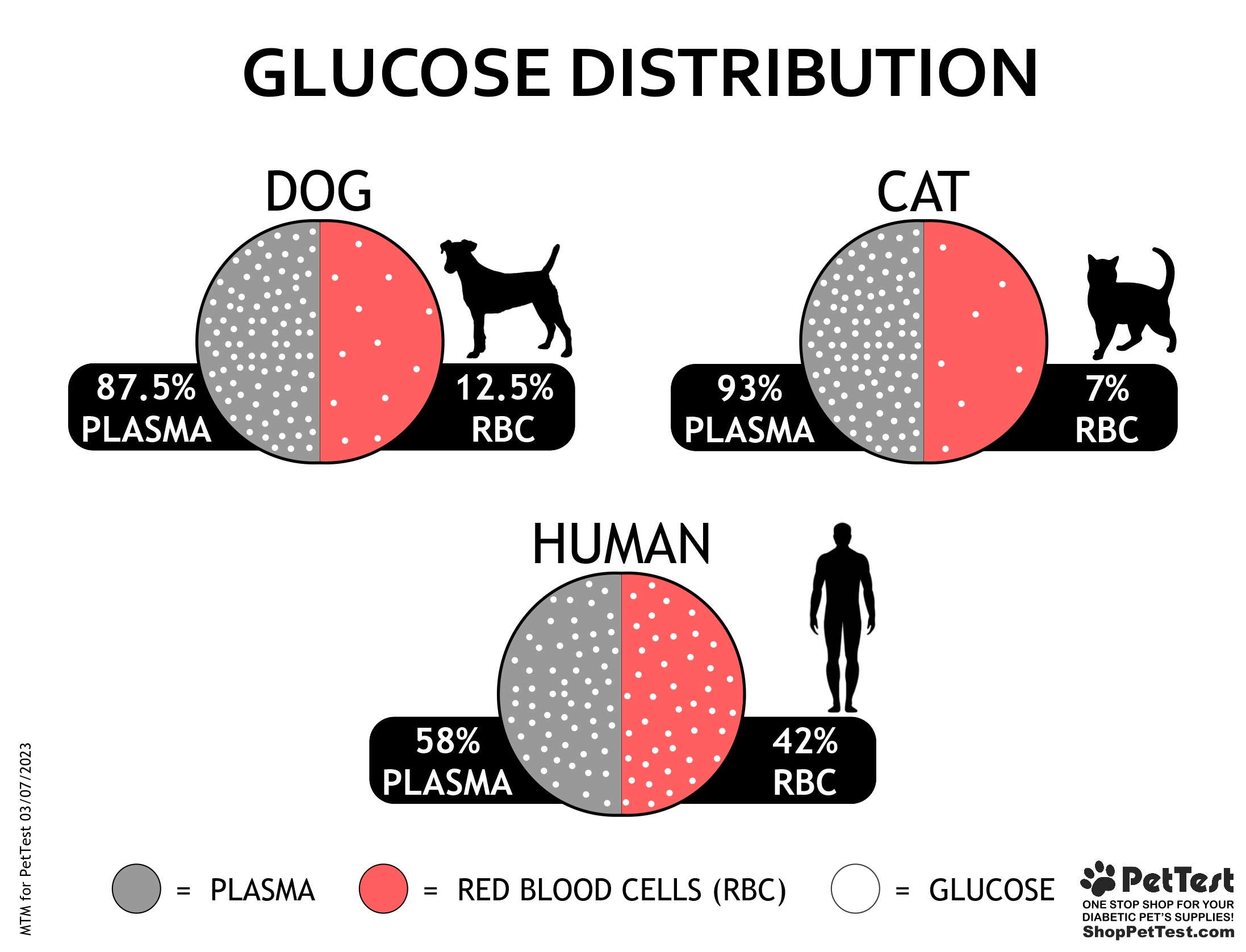Why You Should Use an Animal Glucose Meter for Your Pets
When Lucy was diagnosed with diabetes in 2015 I bought an animal meter so I could test her blood glucose levels, but test strips were expensive so I went and purchased a human meter at the local CVS pharmacy. I mean blood is blood, right? The first human meter I got required a larger sample size than the animal meter so getting a good sample size was a bit trying. I then ran a comparison against the animal meter and the differences were staggering. I ended up throwing the human meter in the trash and used the animal glucose meter exclusively until someone mentioned that the One Touch Ultra Mini meter compared well to animal meters. I went to CVS again and purchased one and while the sample size required was larger than the animal glucose meter, the readings were in an acceptable range. I started using the One Touch Ultra Mini meter for fasting readings and I reserved the animal meter for off readings and curves because the animal meters are the most accurate.
In 2016 I learned of the PetTest blood glucose meter and immediately purchased it. After running a 10-day comparison which included a curve, I started using the PetTest meter for off readings and curves. The test strips cost a lot less than the other animal meter and I got accurate readings. I took the meter to my vet office and they did a comparison check against their animal meter and the numbers were in range. I felt very confident in my new meter and used it for over four years without issue.
Over that 4.5 year span I purchased at least ten different meters; some were human and some were animal meters. I was lucky enough that Lucy was very easy to test and I was able to get a good blood sample from her. Every time I ran ten-day comparisons I went back to my go-to meters, the PetTest and the One Touch Ultra Mini meter. There was a huge variance between the PetTest meter and many of the human meters that I had bought, some were so off that it was frustrating. The other animal glucose meters that I compared were equally inadequate and I never used them.
So why should you use an animal glucose meter for your pets? The simple answer is that animal glucose meters are specifically calibrated for use in either cats or dogs.
Animal meters are configured to read either dog or cat blood. This is important because glucose is distributed differently in species, and glucose meters use a specific algorithm for the species the meter is made for.
If you look at the chart below you will see that glucose distribution between species is vastly different.

As you can see, the distribution is much different than in dogs or cats. The ratio of glucose carried in plasma vs. glucose carried in red blood cells makes a difference when a meter is reading a blood sample.
Animal meters require either DOG or CAT mode or a DOG or CAT code, by having these species-specific modes the meter changes the algorithm to read the blood sample properly. The algorithm considers the percentage differences of glucose in red blood cells between dogs or cats. A human meter does not have this option and has a set algorithm for humans.
I have accidentally switched from dog to cat mode when I was using the other animal glucose meter, I entered the incorrect test strip code. When I was entering a new code for a new bottle of test strips, I realized that I had previously entered the cat code, and when I compared dog vs. cat mode there was a variation in blood glucose readings.
Please know that I am not telling you that if you don’t have an animal blood glucose meter that you shouldn’t test blood glucose levels. I always say any meter is better than no meter because we must be able to test our pets. Testing blood glucose levels can save your pets life…we are injecting a strong hormone, hypoglycemic events can happen without seeing clinical symptoms, getting consistent high blood glucose readings require further examination and testing. And for those with cats remission is possible if your cat is a type 2 diabetic, this requires close blood glucose monitoring.
But you should have an animal glucose meter for running curves and any off readings you may get if you are using a human meter. If you are using a continuous glucose monitoring (CGM) system you should always use an animal glucose meter when checking blood glucose levels. Remember that blood glucose readings are real time and are the most accurate when we use a reliable animal meter.
If you don’t have an animal meter, please click here to take you to the PetTest Meter Kit. Everybody should have a reliable meter, it’s easy to set up and the test strips are affordable, especially if you sign up for their emails!
If you have any questions, comments or suggestions, please start a conversation below.
For a printable version of this blog click here.
Until next week stay comfy, warm and caffeinated!
Michelle Miller-Matlock
AAHA Certified Diabetes Educator
Founder/Administrator of DDO: Diabetic Dog Owners University
Administrator of Diabetic Dog Owners on Facebook
Want to learn all you can in a simple and easy to follow format? Please join DDO-U: Diabetic Dog Owners University , graciously sponsored by PetTest.
Be sure to join the PetTest family on Facebook and Instagram. PetTest has fun, interactive posts AND they have fabulous giveaways every week!

